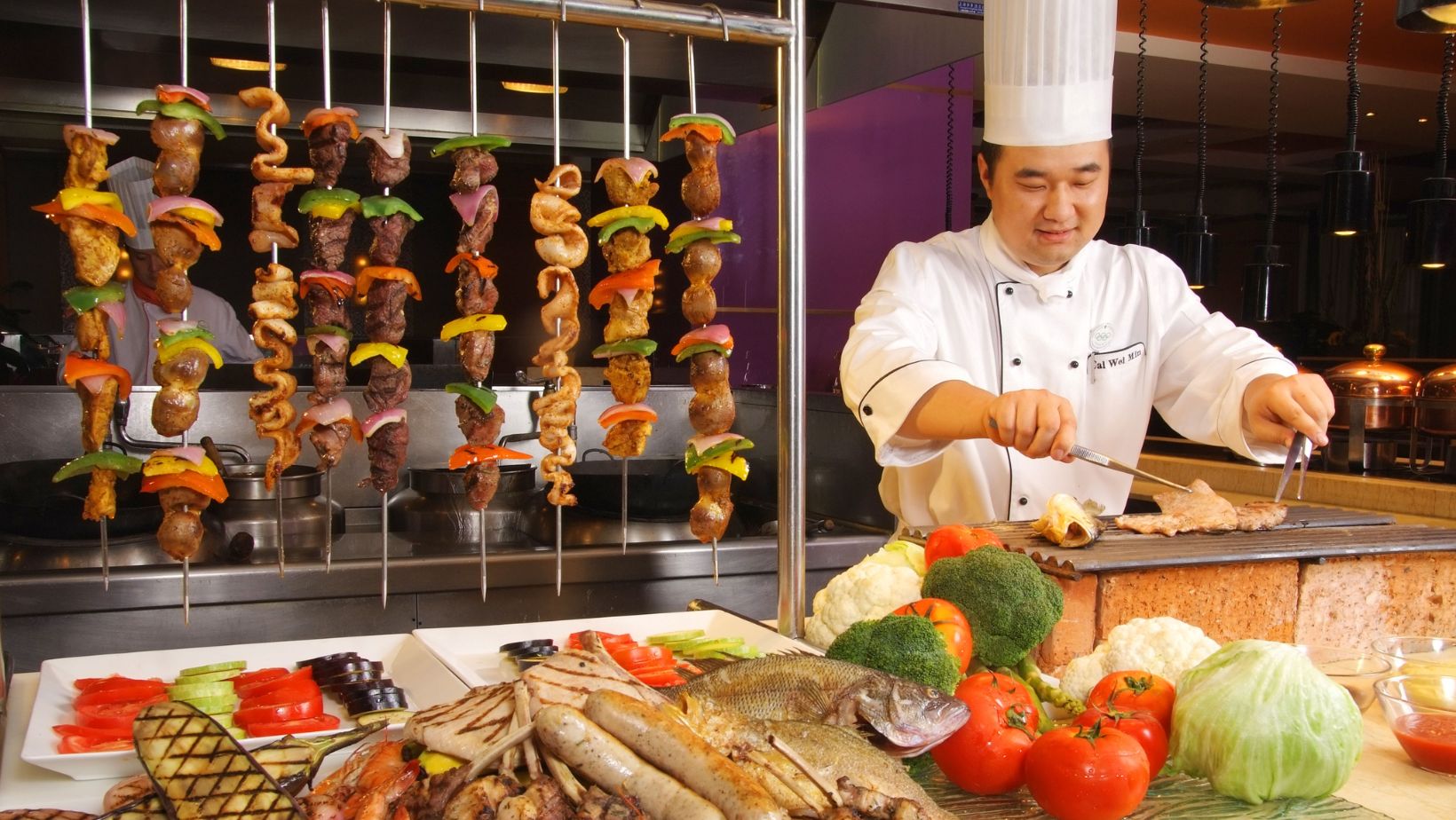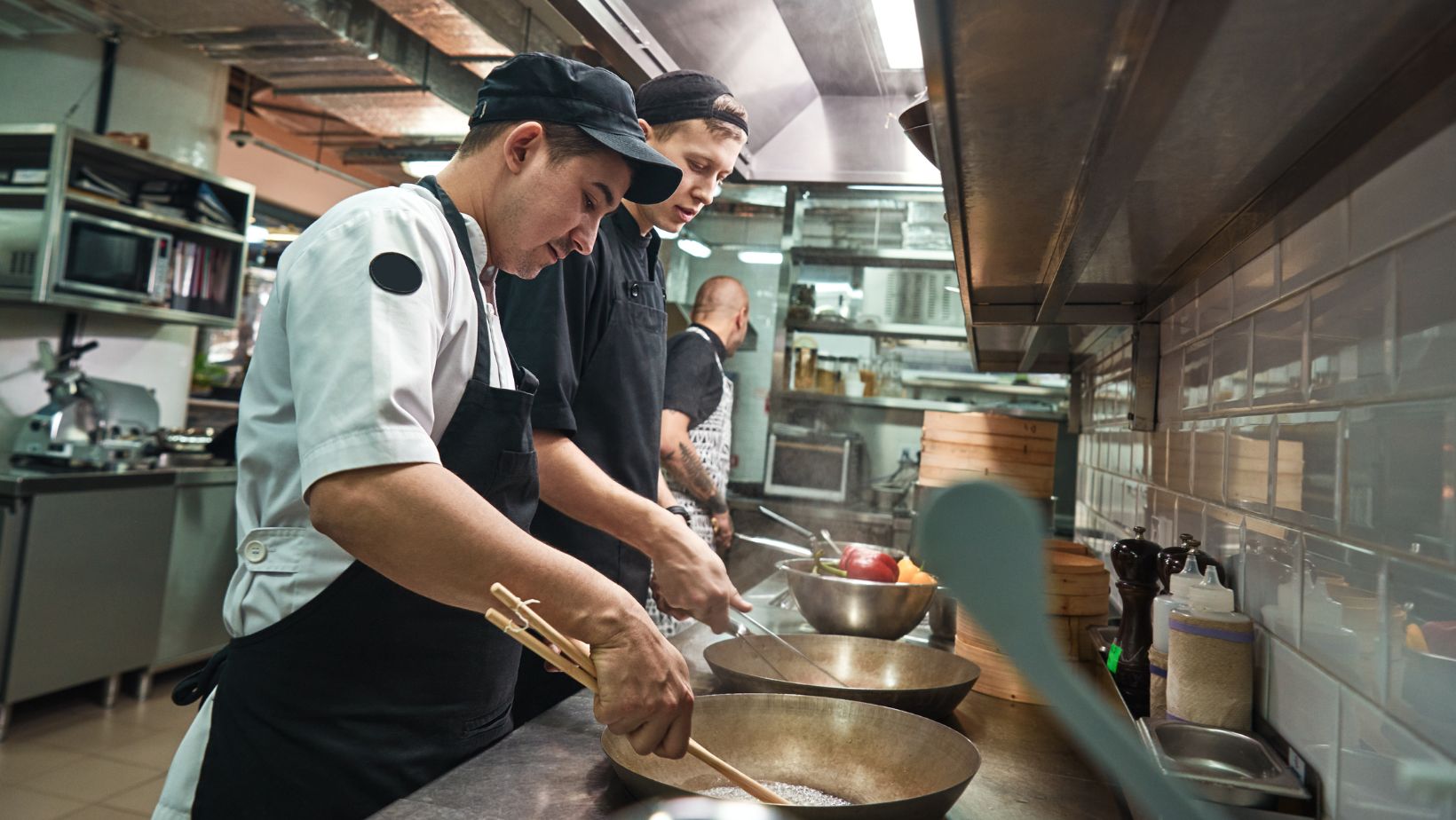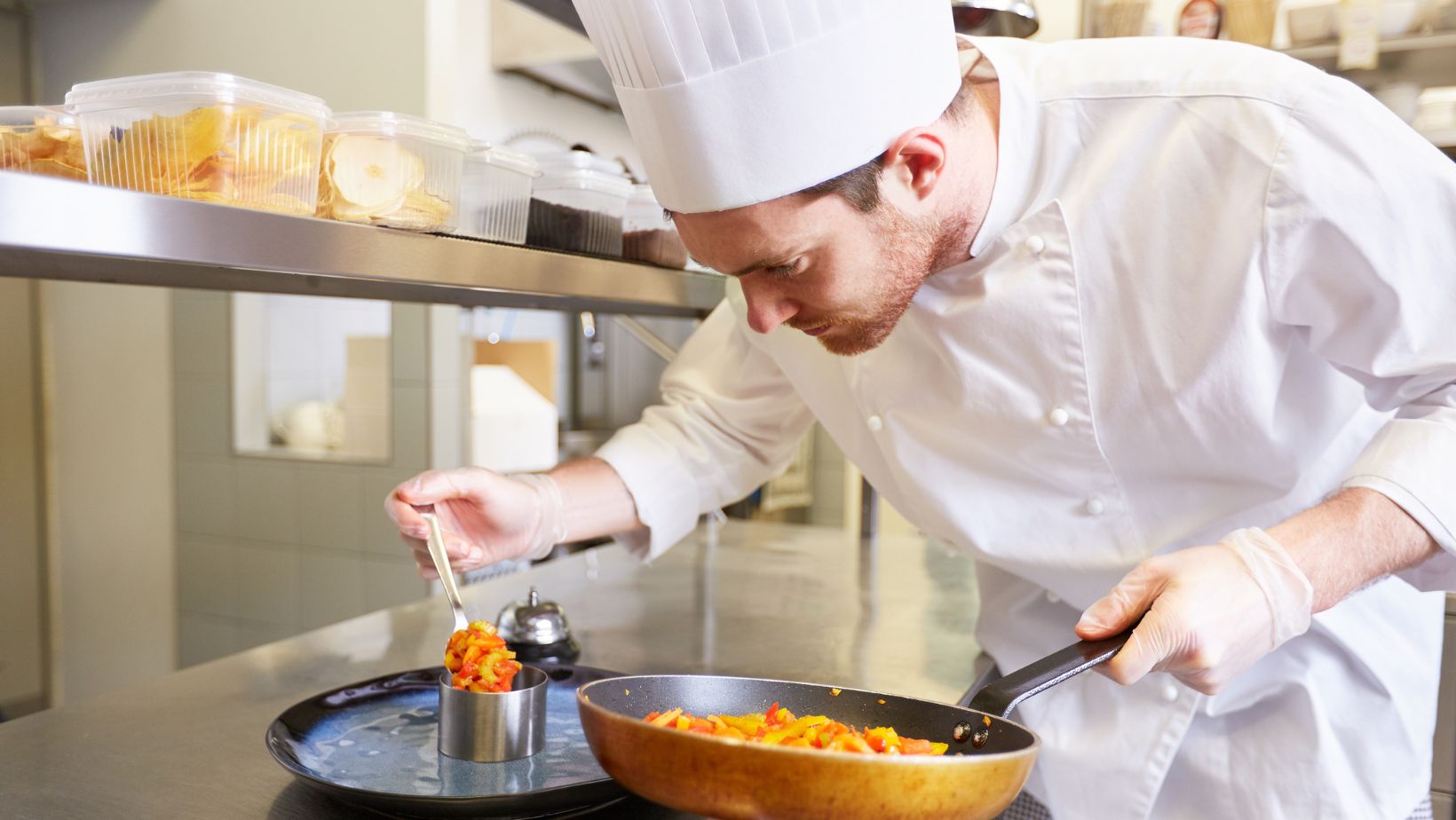
What does it take to be a successful restaurant cook at a luxury hotel?
Is it having a refined palate or being able to stay calm under pressure? Or is it maybe being a master of time management or possessing exceptional creativity?
While all these skills are certainly important, being a successful restaurant cook is about much more than just technical prowess.
It’s about passion, adaptability, and a relentless dedication to your craft.
In this article, we’ll delve into the essential skills and qualities that define a successful restaurant cook and explore how you can hone these skills to excel in your culinary career.
If you’re new to this world, this guide will provide you with a solid understanding of what it takes to become a successful restaurant cook and where this journey can take you down the line.
The Basics of Being a Restaurant Cook
Many aspiring restaurant cooks enter the kitchen thinking they’ll immediately start crafting elaborate dishes. However, the reality is a bit more grounded.
Initially, you’ll be tackling less glamorous tasks—peeling mountains of potatoes, dicing onions until your eyes water, and meticulously cleaning vegetables over and over again.
As a novice, you’ll also need to learn the culinary language. Terms like ‘julienne,’ ’emulsify,’ and ‘mise en place’ will become part of your vocabulary, and yes, they’ll sometimes feel like the bane of your existence.
You will face pressure to perform and maintain consistency, striving to meet the high standards set by the head chef. But, as they say, if you can’t stand the heat, get out of the kitchen.
Kitchens are hot, hectic environments, and many love them exactly for that.
There’s an undeniable rush in service and a sense of camaraderie and achievement in keeping up with the pace. So, if you’re willing to put in the sweat and tears, this role will reward you with immense satisfaction and the pride of being part of something bigger than yourself.
Responsibilities of a Restaurant Cook
As outlined in a typical restaurant cook job description, the responsibilities of a restaurant cook always begin with some groundwork.
Think stocking fresh ingredients, prepping them, maintaining a spotless kitchen, and stuff like that.
Then come the line cook tasks, and this is where the magic happens.
Your hands will be the ones bringing to life the dishes that define the restaurant. You’ll be cooking, tasting, adjusting, and plating dishes, all while managing multiple orders.
Sounds hectic? Don’t worry, you won’t be doing any of this alone.
You’ll be working closely with other kitchen staff who’ll assist you in all these tasks, as long as you learn to effectively communicate with them.
As you climb the ranks, more responsibilities will come your way.
You might be involved in menu development, supervising staff, negotiating with suppliers, and even managing the entire kitchen.
The culinary world is full of opportunities; you just have to go ahead and seize them!
Specialization in the Kitchen
A truly indispensable restaurant cook is one who has a niche and a specific set of skills honed to perfection.

As a line cook, you might specialize in the grill station or the sauté station. If you’re more of a creative type, the pastry station could be your calling.
If none of these appeal to you, you could still become the sauce whisperer and the cold-food connoisseur. In fact, you could even complement your culinary skills with extensive wine knowledge and become the restaurant’s personal sommelier.
Ultimately, specialization is about finding your passion and pursuing it with relentless dedication.
Whether it’s mastering one area or overseeing all others and pushing their boundaries, the key is to follow what excites you the most.
Restaurant Cook Skills
Knife skills
If you’re on TikTok, you’ve probably seen those viral videos of finely diced veggies making perfect sandwiches—and for a good reason.
Not only do they look amazing, but they taste incredible, too. Believe it or not, the uniformity in slicing and dicing really does make a difference.
That’s exactly why precision and good knife skills are so valued in a restaurant kitchen. In fact, they’re one of the first things you need to master if you want to become a successful restaurant cook.
Time management
Restaurant kitchens are fast-paced, and everybody knows this.
Knowing how to manage time effectively is a prerequisite for this role, or else you can kiss goodbye to keeping up with orders and staying sane during rush hours.
And that’s just not something you – or the restaurant – can afford.
Multitasking
It is presumed that, as a restaurant cook, you’ll be able to handle multiple tasks at once.
If a restaurant cook doesn’t have this ability, the restaurant’s service will suffer, and its patrons will be going out of the door before their food even hits the table.
Refined Palate
Nothing ruins the dining experience quite like bland or overly salty food.
Trust us, if you can’t season the food properly and in a balanced manner, the restaurant will be flooded with poor feedbacks from unhappy customers.
And you definitely don’t want to be the one responsible for that, right?
Stress Management
In high-stress environments such as restaurant kitchens, the ability to stay calm under pressure is crucial.
If you can maintain your composure even when everything is chaotic, you’ll help create a professional, focused atmosphere.
This, in turn, translates to better teamwork and higher-quality dishes.
Creativity
As a restaurant cook, you’ll sometimes be tasked with creating the signature dishes that make your establishment stand out from the competition.
This requires a balance of creativity as you experiment with flavors and presentation, as well as a keen awareness of the restaurant’s brand and target audience.
Striking this balance is the key to developing dishes that not only taste amazing but also resonate with the restaurant’s identity and appeal to its customers.
Attention to Detail
At first glance, it might seem trivial, but to diners, even the garnish on a plate can significantly impact their dining experience.
Ultimately, these details also shape the restaurant’s reputation and set a standard for the establishment.
So, pay attention to even the smallest details—they can make or break both you and the restaurant.
Stamina
Working in the kitchen means enduring long hours on your feet in a hot environment.
It’s the kind of work that demands both physical endurance and mental fortitude, so if you’re not up for the challenge, you’re in for a tough ride.
However, for those willing to push through the heat and the pressure, the kitchen offers a rewarding and exhilarating career path.
Teamwork
A restaurant kitchen requires everyone to work together towards a common goal.
If there’s no teamwork and effective communication, the entire operation can quickly unravel. The orders get mixed up, dishes come out late or incorrect, and the overall dining experience suffers.
Remember, in a restaurant kitchen, each person plays a crucial role, much like a well-oiled machine. Not being a team player in this role simply won’t cut it.
Adaptability
There’s been an unexpected shortage of ingredients.
No problem; just substitute them with something else that’s available. Maybe the dish won’t be exactly as planned, but being able to think on your feet and make adjustments is a skill that could prevent a disaster in the kitchen.
The oven just broke down in the middle of service.

Don’t panic; quickly shift to using other cooking equipment like stovetops or grills to keep the orders flowing.
A large party just walked in, and you’re short-staffed.
Rally the team and reorganize tasks to ensure efficient service. Everyone may need to pitch in a bit more, but all guests will be served promptly and enjoyably.
If you’ve got this skill, there won’t be any challenge that you and your team can’t overcome in the kitchen.
Career Progression for a Restaurant Cook
Not all the career trajectories of a restaurant cook look the same, but the traditional route will look something like this:
You’ll start off as the apprentice or the commis chef. At this stage, your only task will be to absorb as much knowledge and technique as possible.
At stage two, you’ll be assigned to a specific station and often start your specialization there.
Next, you’ll grow into the sous chef role.
You’re now second in command and managing your own team in the kitchen. Under some circumstances, you might even get some say in how the menu should look.
Finally, the pinnacle of your journey will be becoming a head chef. The kitchen will be all yours, and so will the kitchen responsibilities.
Now, there are also some alternative culinary paths you can explore as a restaurant cook if none of these tickle your fancy.
For example, you could become a private chef or a culinary educator like Julia Child. You could also become a food critic or even a food stylist.
Whichever path you choose, be open to boundless learning and growth, and you’ll find yourself a fulfilling career as a restaurant cook.






